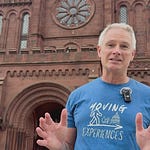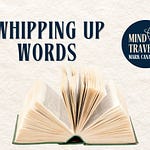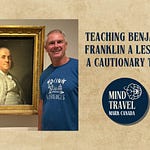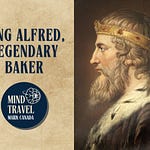If you need inspiration during the New Year season or any other time, consider the life and work of Frederick Douglass, who escaped slavery in the 1830s to become one of America’s greatest authors, as well as a speaker, journalist, and activist.
Douglass wrote not one, not two, but three autobiographies. The first of these, Narrative of the Life of Frederick Douglass, An American Slave is one of the greatest examples of a genre that has come to be known as a slave narrative, but it is much more, as a close reading of his book reveals.
I cannot do Douglass’s magnificent book justice in a single column, but let me touch on a few key passages, which I hope will serve as inspiration to you as a new year—and a new opportunity to rise like Douglass—approaches.
In Chapter VI, Douglass relates an incident that brought a revelation to him. When he was a child, Mrs. Auld, the wife of the man who was acting as his master at the time, began teaching Douglass to read. Mr. Auld found out and intervened, telling his wife that, in Douglass's words, "it was unlawful, as well as unsafe, to teach a slave to read." He went on to explain the danger, to a slaveholding society, of opening up the world in this way, saying that the slave "should know nothing but to obey his master — to do as he is told to do." Reading, he tells his wife, "would forever unfit him to be a slave. He would at once become unmanageable, and of no value to his master." In one of the key passages in the entire book, Douglass goes on to explain the impact of this incident on his thinking. This passage is worth quoting at length:
“These words sank deep into my heart, stirred up sentiments within that lay slumbering, and called into existence an entirely new train of thought. It was a new and special revelation, explaining dark and mysterious things, with which my youthful understanding had struggled, but struggled in vain. I now understood what had been to me a most perplexing difficulty — to wit, the white man's power to enslave the black man. It was a grand achievement, and I prized it highly. From that moment, I understood the pathway from slavery to freedom. . . . Though conscious of the difficulty of learning without a teacher, I set out with high hope, and a fixed purpose, at whatever cost of trouble, to learn how to read.”
Reading, Douglass came to understand at that young age, was a form of empowerment. As a means to learning, reading expands one's mind, leading not only to an enhanced ability to think, but also to greater confidence in one's abilities.
A second key incident in Douglass's book (and his life) came when another man, Mr. Covey, who had hired out his services from another white man, set out to whip him. Rather than give in, the safer option in this slaveholding society, Douglass "resolved to fight" — and fight he did. "We were at it for nearly two hours," Douglass wrote.
“Covey at length let me go, puffing and blowing at a great rate, saying that if I had not resisted, he would not have whipped me half so much. The truth was, that he had not whipped me at all. I considered him as getting entirely the worst end of the bargain; for he had drawn no blood from me, but I had from him. The whole six months afterwards, that I spent with Mr. Covey, he never laid the weight of his finger upon me in anger. He would occasionally say, he didn't want to get hold of me again. "No," thought I, "you need not; for you will come off worse than you did before.”
This resistance was obviously a demonstration of Douglass's spirit and courage, but the result was something else, something even more powerful. Douglass explains:
“This battle with Mr. Covey was the turning-point in my career as a slave. It rekindled the few expiring embers of freedom, and revived within me a sense of my own manhood. It recalled the departed self-confidence, and inspired me again with a determination to be free. The gratification afforded by the triumph was a full compensation for whatever else might follow, even death itself. He only can understand the deep satisfaction which I experienced, who has himself repelled by force the bloody arm of slavery. I felt as I never felt before. It was a glorious resurrection, from the tomb of slavery, to the heaven of freedom. My long-crushed spirit rose, cowardice departed, bold defiance took its place; and I now resolved that, however long I might remain a slave in form, the day had passed forever when I could be a slave in fact.”
I agree with Douglass when he says, "He only can understand the deep satisfaction which I experienced, who has himself repelled by force the bloody arm of slavery." The extent of oppression that Douglass experienced and the satisfaction he felt when he opposed it are, fortunately, not things that most of us will ever know. If the degree was greater, though, the nature of Douglass's experience is familiar to all of us. Every one of us has been oppressed or constrained in one way or another — some far more than others — by discrimination, hate, intolerance, exploitation, even what the poet William Blake called our own "mind-forged manacles": fears or feelings of inadequacy, for example. If we have been, like Douglass, held down, however, we also can, like Douglass, confront the oppressive forces and rise, at least intellectually and perhaps, someday, materially.
These two episodes from Douglass's book illustrate two keys to self-actualization: preparation and action. In the first, Douglass learned of something that could help prepare him for a positive change. Education, he realized, would equip him to rise. In the second, he took action, and that action brought about a new identity, a new stage in his life.
As you think ahead to 2025, I invite you to "do like Douglass": prepare, through education or other means, to rise and then act to make the rise real. Your preparation and action can lead to your own "glorious resurrection."










